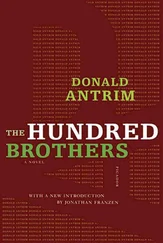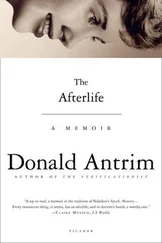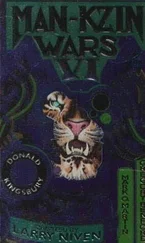I reached down and grabbed a handful of cinnamon-raisin toast from Bernhardt’s plate. I surveyed the room. It was tempting, very tempting, to fire a round at Sherwin Lang. On the other hand, for reasons having to do with alcoholism — the paranoia and grandiosity, all the thought disorders and the ugly volatility associated with that common disorder — this was a bad idea. Elizabeth Cole looked stunning with her black hair falling around her face, only barely hiding her large, provocative ears. Hitting her with food would be a disturbingly powerful sexual gesture.
“Don’t do what I think you’re thinking of doing, Tom,” warned Bernhardt behind me.
I calculated the distance — three square tables covered with blue cloths and placed corner to corner, a diamond pattern allowing waitress-and-tray-width walking grids between and around each table — to Peter Konwicki’s head. The child psychologists all saw what was coming and hid behind menus. I said to Bernhardt, “You’ve got to relax and have fun for a change, Dick.”
“Don’t call me Dick.”
I felt a hand on my arm. It was Bernhardt’s. This man’s hand grasped my arm — the fingers wrapping tightly around my forearm, pinching my arm — so that I could not move or shake free to throw the toast.
“Get your hands off me, Richard.”
“Drop the bread, Tom.”
As always, when dealing with an unpleasant dispute over professional conduct or ideology — ours was, after all, a professional pancake gathering — I looked, hopefully, to other factions for support.
“Tom, Richard is right. We don’t want a food fight tonight. I’m sure it would be a tension reliever, but everyone is already having such a pleasant evening. Can’t we just drink our coffee?” This from Maria, who said to our foreign companion, “More coffee, Manuel?”
Escobar watched me and Bernhardt (watched my arm held so tightly in Bernhardt’s hand) the way he watched everything in life — inscrutably, intelligently — and it was impossible not to admire his competence as a speaker in an adopted language when he said, “Thomas embraces a revolutionary spirit in his work. We must not ask him to behave otherwise in society. Let him hurl these pieces of toast like new and radical ideas that must be cast into the world. Pieces of toast like angry children who will hit us and upset us and change our ways of thinking and feeling.”
“Thank you, Manuel,” I said, tugging my arm, trying to break loose and lob a Hail Mary shot over the open menus barricading the child psychologists. It was all too much for Bernhardt. The man heaved himself up from his seat and, in a rash and impulsive moment, seized me in a bear hug. His arms wrapped around me. It was fantastic to be held by this man with the huge body and the arms that squeezed and squeezed.
My hands were pinned to my sides. Bernhardt’s stomach against my back felt soft, warm, repulsive. The man inhaled and grew larger; and it was as if he were ballooning, growing immense with air. I sank into him. I could hear his wheezing as he breathed, the oxygen going in, the blood-heated exhalations streaming out. His hat’s brim pressed against my head, and I could smell a perfume of geraniums — or maybe lilies? — in the mixture of Bernhardt’s breath, his sweat and his clothing, the shampoo and shaving lotion. He rested his chin against my shoulder, and we swayed from side to side, and I breathed the man’s scents while his arms crushed my ribs.
Breathing got difficult, and I said, whispering, “Please, let go.”
Looking across the restaurant, I saw friends and strangers, the analysts and the waitresses and, near the door, an intact family with small children, and, also, a young couple — attractive, sullen teenagers killing time in a corner. No one, not even our busy Rebecca, ate or moved or looked away from the humiliating spectacle of Bernhardt lifting me a foot or more off the floor, Bernhardt holding me high in the air, cradling me.
For a moment I hung there. Bernhardt, his breath tickling the hairs sprouting from my ear, whispered:
“Say uncle.”
That was when I felt the sadness coming on. It was not surprising, given the circumstances. How often are we, as adults, raised up and carried like babies — in public! — softly spoken to by a man whose face we cannot see, a man who is enormous and powerful, terrifying, as he holds us aloft? Try this sometime if you don’t believe me when I say that the experience will make you weep with sorrow and regret for all the trouble you have caused — will cause — the people most dear to you. My thoughts, naturally, went to Jane. Here came Jane, the image of her, filling my mind and my heart, that night in the Pancake House, that evening in Bernhardt’s arms— Jane! Jane! — filling my heart with pity and shame. She is not a monster to me. Not at all. I am the one, not she, who remains, after all our years together, frightened by love. Or I should say that I am frightened, and so is Jane; we are frightened in our different though complementary ways. Sometimes, on an evening in winter, when the house is only dimly lit by reading lamps and the fire burning in our fireplace, I might happen to see her standing idly in the living room’s soft half-glow, her face lit by firelight and her body veiled in shadows that flicker then disappear; or, later, insomniac and anxious in the cold night hours, I might peer down on her as, wrapped in sheets, she sleeps; or, the next day, a rainy, windy day at home, I will hear footsteps on creaking floorboards overhead — Jane upstairs, walking back and forth, doing some small thing, shutting windows against the storm — and during these or a thousand similar household moments, interludes of relative quiet, of no apparent consequence insofar as nothing consequential is taking place, I will be struck, swiftly, deeply, absolutely, with the presence of her — I don’t know what else to call this — her bodily presence and the weight in the room, in the house, of another life, her life, charged as it is with her feelings and thoughts, the lonely, playful, idiosyncratic and remarkable moods that seem, as moods (especially bad moods) do, virtually to radiate outward from her — I believe this is what people mean when they talk about a person’s spirit — permeating the air and turning the whole environment into an arena of sexuality and heat. I share in this. We are together. Sex presses in. Would a picture of Jane make things more concrete? Her breasts, always beautiful to me, have, I think, grown fuller and more gorgeous over the years; they look as they might if she were pregnant. Lately she leaves her hair unbrushed, a brown-and-gray snarl that cascades over her eyes and down around her bare white shoulders. Jane has recently taken to backless dresses — she wears them around the house! — and I am tormented, even in the frigid winter months, by the network of large and tiny moles that range from the base of her spine up her lower back, a dark arabesque of shaded blemishes, benign, interconnected birthmarks that combine, in a certain light, to resemble, to my mind, a kind of reduced, miniaturized, monochromatic landscape — a greatly shrunken Bierstadt or a Winslow Homer painting, I sometimes think, one of Homer’s grand Atlantic Oceans, night falling over the sea and a mist descending to obscure little fishermen in their boats, men far from home, away from shore, adrift on waves that crash across my wife’s lumbar region as she bends down to stroke the cat. I’ve been staring at Jane’s birthmarks for a long time, and it stands to reason that I detect in these forms a coherence and meaning that other people would not appreciate. But I am straying from the scene at hand: Bernhardt, the obese Group counselor, the Ph.D., hugging me to him like a father hugging his baby girl. What strength this man had! His arms — one red coat sleeve crossed over the other — were wrapped around me, encircling me; his hands’ open palms pressed against my belly and my ribs. He squeezed and the breath went out of me and I felt dizzy and sick to my stomach. I leaned back, turned my head, and peered over Bernhardt’s shoulder; I gazed, from my high perch, helplessly down at our table. I could easily see that unhealthy still life made from sticky plates and empty glasses, saltshakers and butter dishes, our knives and spoons and the paper napkins blotted with coffee and orange marmalade and eggs already fading to brown, the napkins stained with food and, in the case of Maria’s spread like a shroud across her plate, stained with lipstick, the scarlet impression of Maria’s unsubtle kiss. Bernhardt the horrible father whispered into my ear, “You’re nothing but trouble, Tom. That’s why we love you. I know it may surprise you to hear that we love you, but it’s true. I’ll say it again. We’re your coworkers, and we love you. Sometimes, though, you get carried away and you have to be stopped, Tom, because when you get carried away, when you go too far and play too hard, then things get out of control, and when things get out of control, everyone feels bad. Why does everyone feel bad? I’ll tell you why. When you start climbing across the furniture or throwing toast or spitting water at people, all those silly things you like to do around the office or during important meetings or at dinner parties, then the world gets crazy and unpredictable, and everyone around you, all the people who love you, we all get swept up in your craziness, and before long we feel sad. We feel sad and lost. We know what it means to be you, Tom.”
Читать дальше












